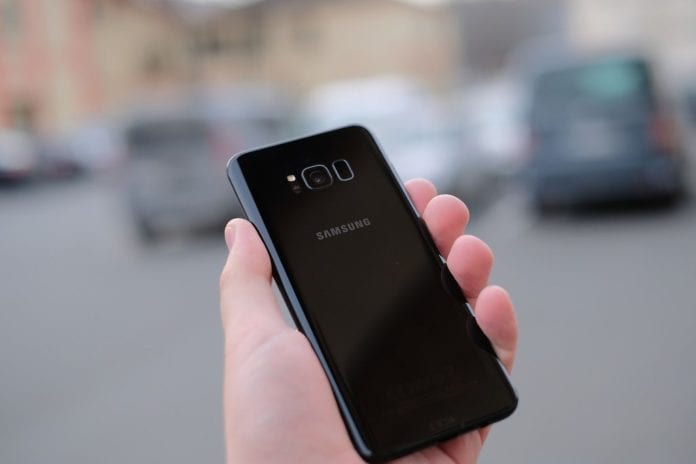The Samsung Galaxy S8 is evolutionary, not revolutionary. It is a better smartphone than previous versions in a few ways, but it is not a home run. The screen is bigger and better. Bixby, their new AI, which I’ve been waiting to try is a no show so far. The battery is better than last year, but not as good as it should be. The camera doesn’t seem to be updated much at all. Bottom line, this is better than recent versions, and will satisfy Samsung users, but is not earth-shaking.
One problem with Samsung Galaxy phones is they want to become their own operating system that users love, like the Apple iPhone iOS. However, with the Galaxy S8, there are two different operating systems and you can choose either one to use. One is Samsung and the other is Google Android. I would expect the vast majority mostly use Android.
Which OS, Samsung or Android?
While Samsung is trying to make their operating system better, Google Android is still tops with users. The problem with that is Android is also available on so many different smartphones it can make your head spin. There are several, high-quality smartphone makers that use Android like LG. There are also countless lower quality smartphone makers who also use it. This creates a huge and confusing Android marketplace.
That’s why users choose one brand and if they are happy, generally stick with it. Typically, Samsung with Google Android users are different from Apple iPhone users. Users can own both, but generally stick with and like one over the other. And when they find their favorite, generally stick with the brand long-term.
Samsung is a great smartphone maker. Users love them, even with the disastrous issues from last year. With that said, Samsung has some serious quality problems they need to iron out. Not only with the Galaxy S7 which exploded a few months ago, but with their washers and dryers as well. This is a company which has become very successful and has grown very rapidly in many different areas, but which is also experiencing some serious problems that have injured their brand.
Samsung brand not as strong and needs to recover
The Samsung brand is not as strong, not as bulletproof as it was before the disasters of the last year. It is possible that Samsung can recover and rebuild their brand value, and I hope they do, but that will take time and excellent products with no other safety problems. So today, this is damaged brand story that will take time to heal.
Bixby, is the Samsung version of Apple Siri, Google Now, Google Home, Microsoft Cortana and Amazon Alexa. It is Samsung’s AI entry. That means if it works well, it will be helpful with basic features. AI is important going forward.
Bixby is Samsung’s AI like Google Now, Apple Siri or Microsoft Cortana
Another choice users will have, is which AI technology to use. Samsung users will have to choose between using Bixby or the AI in Android called Google Now. So, the next question is, as users are already comfortable with Android AI, will Samsung Bixby be different and better? That’s the only way it will get users to use it.
Bottom line, Samsung Galaxy S8 is a better device, with a better screen and a few improved features. However, Bixby is not working yet and the rest of the device is not that much different than previous versions. With that said, since the S7 was an exploding disaster, there are many users who have been waiting for an upgrade, and for them, the Galaxy S8 will be a winner if it can stay on the right track.
I’ll write about Bixby when I’ve tried it, after it finally makes its appearance. Not expecting much from the start. As with all AI, Bixby will get better over time. But I am hoping it will be exciting and different than the Android version. Here’s hoping!

